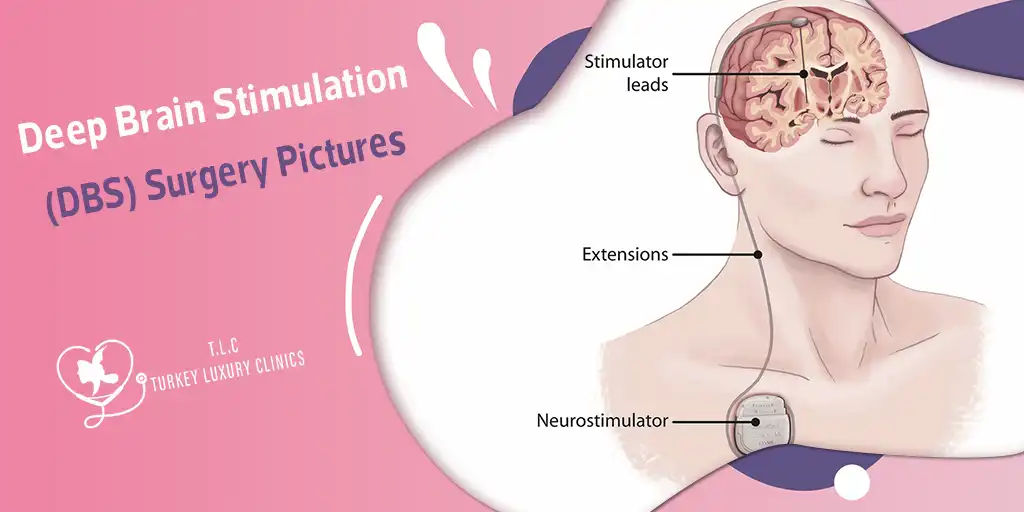- - Who is Harrison Ford?
- - Does Harrison Ford Have Parkinson’s in Real Life?
- - What Made People Think Harrison Ford Has Parkinson’s?
- - Why Harrison Ford’s Parkinson’s Performance in Shrinking Feels So Real
- - What Harrison Ford Said About the Role in Shrinking
- - The Impact of Ford’s Parkinson’s Performance on Viewers
- - How Audiences Responded to Ford’s Portrayal of Parkinson’s?
- - Does Harrison Ford Have a Disease?
- - Shrinking Season 3 (2026) and Harrison Ford Parkinson’s Rumors
- - FAQs About Does Harrison Ford Have Parkinsons's
Ever since Harrison Ford delivered his remarkable performance in the 2023 series Shrinking, where he plays a character living with Parkinson’s disease, many viewers began to wonder if Harrison Ford has Parkinson's.
The speculation didn’t come from nowhere. Ford’s performance was so detailed and emotionally convincing that many viewers felt like they were watching a real patient, not an actor. His subtle hand tremors, measured movements, and quiet pauses made the character’s daily struggles feel real and believable.
In reality, Harrison Ford has not been diagnosed with Parkinson’s. He clarified in interviews that he does not have the condition and that he approached the role with serious preparation and deep respect for people living with Parkinson’s.
His commitment not only elevated the character but also helped bring more public attention to the true nature of Parkinson’s and the challenges faced by those who experience it.
Here, we explore why his portrayal felt so authentic and what led many people to question whether he had Parkinson’s in real life.
Who is Harrison Ford?
Harrison Ford (born July 13, 1942) is a legendary American actor and producer, widely recognized as a cultural icon. He has starred in some of the highest-grossing films of all time, including the Star Wars and Indiana Jones franchises. The 83-year-old star, who stands at 6 feet 1 inch (1.85 m), has enjoyed a career spanning over seven decades and continues to captivate audiences worldwide.
His real name is Harrison Ford, which he has used throughout his career. He is married to Calista Flockhart and remains active in Hollywood. Best known for his roles in Star Wars and Indiana Jones, Ford built a career playing strong, charismatic characters—making his restrained performance in Shrinking a striking contrast to his earlier film work.
One of his most notable recent projects is the Apple TV+ series Shrinking (2023–present), where he portrays psychiatrist Dr. Paul Rhodes, a character living with Parkinson’s disease. Ford’s performance has been praised for its authenticity and depth, earning critical acclaim, an Emmy nomination, and sparking curiosity about his health.
Does Harrison Ford Have Parkinson’s in Real Life?
No, Harrison Ford does not have Parkinson’s disease. In the Apple TV+ series Shrinking, he plays Dr. Paul Rhodes, a character living with the condition, but in real life, there are no medical reports, official statements, or personal admissions indicating that Ford has Parkinson’s. He has never addressed the rumors directly, choosing instead to focus on taking the role seriously and portraying the character with authenticity, respect, and accuracy. As he put it in his interview with People, he approached the role “deadly seriously,” making it clear that his goal was to honor the real experiences of people living with Parkinson’s—not reflect his own health.
While Harrison Ford doesn't have a chronic disease, he publicly announced a diagnosis of shingles in early 2025, which caused him to miss the Academy Awards that year. Along with his character with Parkinson's disease in the series Shrinking, public confused, but Ford clarified he does not personally have Parkinson's, emphasizing his performance was for the role.
What Made People Think Harrison Ford Has Parkinson’s?
Harrison Ford captured everyone’s attention with his role as Dr. Paul Rhodes in Shrinking, portraying a character living with Parkinson’s disease. His performance was so precise, from the subtle hand tremors to the careful pauses in movement, that many viewers began to wonder: does Harrison Ford have Parkinson’s?
The rumors about Harrison Ford and Parkinson’s, which emerged shortly after Shrinking premiered, are based solely on his portrayal of a therapist with the disease, not his personal life. Social media discussions, online searches, and fan speculation quickly fueled these misconceptions. People analyzing his gestures, posture, and speech patterns in episodes mistook acting for reality, showing just how convincing his performance was.
In interviews, Ford clarified that he does not have Parkinson’s and that his performance was the result of careful preparation and a deep respect for those living with the condition. His dedication not only brought authenticity to the role but also helped raise public awareness about Parkinson’s, showing how a committed performance can blur the line between acting and reality.
Why Harrison Ford’s Parkinson’s Performance in Shrinking Feels So Real
Taking it seriously and respectfully, Harrison worked to ensure an honest representation of the condition, drawing guidance from real-life Parkinson's advocate Michael J. Fox and others involved with the show who have a personal connection to the disease.
The symptoms Ford incorporated into his performance to convey the reality and depth of the disease include:
- Physical Tremors: Tremor is a key and early symptom of Parkinson's. Ford subtly portrayed involuntary hand movements in quiet, everyday moments, like reaching for a pen or handling objects, making the tremors feel natural rather than exaggerated.
- Mobility and Balance Issues: Difficulty walking and imbalance in standing an advanced Parkinson's features. Ford adjusted his posture and gait, showing how the character struggles to move confidently or maintain stability, especially in stressful scenes at work.
- Stiffness and Coordination Difficulties: Through deliberate pauses and controlled movements, Ford captured the stiffness and coordination challenges Parkinson’s brings, giving the audience a sense of the effort required for simple tasks.
- Progressive Worsening: The storyline shows the disease subtly affecting the character over time, and Ford mirrored this by gradually increasing physical restrictions and pauses in motion.
- Impact on Daily Tasks: Small narrative details, like a colleague leaving an easier-to-hold water bottle or helping him drive, were matched by Ford’s careful attention to how these challenges felt physically, bringing authenticity to even minor actions.
What Harrison Ford Said About the Role in Shrinking
Harrison Ford has emphasized that portraying Dr. Paul Rhodes’ Parkinson’s journey in Shrinking was no joking matter. In interviews, he described his approach to the character as “deadly seriously,” highlighting the responsibility he felt in accurately representing the experiences of someone living with the disease.
“Can I say deadly f---ing seriously?” he told People, stressing the seriousness with which he approached the role. “There’s no intention to make it into a joke.”
Ford wanted the portrayal to be both authentic and respectful, capturing the subtle physical challenges and emotional nuances of Parkinson’s without exaggeration. He drew inspiration and guidance from Michael J. Fox, a real-life advocate living with the condition, whose presence on set helped him understand the disease’s impact more deeply.
“This is a person particularly equipped to communicate what it is that it’s like … and that is something … worth sharing with our audience,” Ford explained, highlighting how seriously he took the responsibility of representing real-life experiences.
The Impact of Ford’s Parkinson’s Performance on Viewers
Ford delivered a performance that impressed critics and sparked wide discussion about Parkinson’s disease. Many viewers who knew little about the condition gained a clearer sense of the daily challenges and emotional impact it can have. His realistic acting and attention to real-life symptoms made the character feel so believable that some people initially wondered whether Ford might be experiencing the condition himself.
How Audiences Responded to Ford’s Portrayal of Parkinson’s?
When Harrison Ford revealed that he approached his role in Shrinking with seriousness and respect, audiences responded with both admiration and reflection. Online discussions highlighted how his careful depiction of Parkinson’s symptoms—subtle tremors, pauses in movement, and challenges with coordination—felt deeply authentic. Many viewers noted that the performance prompted them to consider the realities of living with the disease and sparked curiosity about treatments and daily challenges faced by those affected. Rather than simply praising his acting, fans recognized the thoughtfulness and empathy behind Ford’s portrayal, acknowledging the responsibility he took in representing a real-life condition with dignity.
Does Harrison Ford Have a Disease?
Harrison Ford does not have Parkinson's disease, though rumors circulated because he played a character with it in the Apple TV+ series Shrinking; he was diagnosed with shingles in early 2025, which caused him to miss presenting at the Oscars, but
He is an actor portraying characters with health conditions, not living with them personally. In March 2025, Ford had to withdraw from presenting at the Oscars due to a shingles diagnosis, a painful viral infection. Ford's health issues (like shingles) are real, but his portrayal of conditions like Parkinson's is part of his acting craft, demonstrating his dedication to authentic roles.
Shrinking Season 3 (2026) and Harrison Ford Parkinson’s Rumors
In January 2026, a major trend involving Harrison Ford, Michael J. Fox, and Parkinson’s disease emerged due to the premiere of Season 3 of Shrinking on January 28, 2026.
Paul's Parkinson's symptoms are worsening, and Season 3 explores the mystery of entering a "decline" phase where standard medications are no longer as effective.
Michael J. Fox, a real-life advocate living with Parkinson’s, returned to the series, bringing renewed attention to the condition and the authenticity of Ford’s performance.
Ford’s collaboration with Fox allowed him to deepen his portrayal of the character’s physical and emotional challenges. Social media and entertainment outlets revisited the question: could Harrison Ford himself have Parkinson’s? While he has clarified in interviews that he does not, the renewed focus on his role and the presence of a real patient on set has made the topic trend once again in 2026.
This highlights how a compelling performance combined with real-life connections can blur the lines between fiction and reality, keeping audiences engaged and curious even years after the initial release.











.webp)
.webp)
.webp)
.webp)

